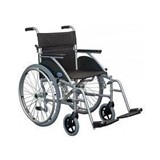Researchers at the University of New South Wales, Australia, published the first independent, randomised controlled trial of web-based cognitive training in MCI in the most recent issue of the journal Brain Impairment.
People with MCI have problems with thinking and memory that are worse than those seen in normal aging, but not as severe as in dementia. The condition is associated with an increased risk of dementia, including Alzheimer’s disease.
Current MCI rehabilitation treatments typically focus on memory techniques and compensation strategies, but results have been largely unsuccessful. This study suggests that training cognitive functions with Lumosity can be an effective and practical rehabilitation method in MCI.
"Although preliminary, these results are very exciting and demonstrate the brain’s ability to change and grow well into old age," said Maurice Finn, Clinical Psychologist and lead author of the study. "What’s more, the implications for the potential treatment of diseases such as Alzheimer’s and dementia are encouraging, and open up new areas for future research."
The study consisted of 25 participants aged 60 and older at the Department of Aged Care and Rehabilitation Medicine Memory Clinic at Royal North Shore Hospital.
The participants were randomised into either a Lumosity training group or a control group. Sixteen participants completed the 30-session Lumosity training program, which consisted of exercises that target a range of cognitive functions such as attention, processing speed, visual memory and executive function.
The Lumosity exercises included Birdwatching, Color Match, Lost in Migration, Memory Match, Raindrops, and Spatial Speed Match.
Participants in the Lumosity training group improved on an untrained, independent measure of sustained attention, while the control group declined from pre-test to post-test. The positive effect of Lumosity training was statistically significant.
"Neuroplasticity is a relatively new field, and we’re committed to furthering research efforts to understand how cognitive training can help people of all ages enhance their brain performance," said Michael Scanlon, Chief Scientific Officer at Lumosity.
"That’s why we’ve created the Human Cognition Project, which allows independent researchers across the world, such as Maurice Finn and his colleagues at the University of New South Wales, to use Lumosity as a platform for studying cognitive abilities."
Over 190 researchers are currently conducting independent research on Lumosity as part of the Human Cognition Project. These research efforts contribute to Lumosity’s database of human cognition, which is the largest in the world, with more than 320 million data points to date.
Lumosity’s research and development team continually analyze this data to optimize Lumosity and the training experience, whether it’s new games, assessments or other improvements.










